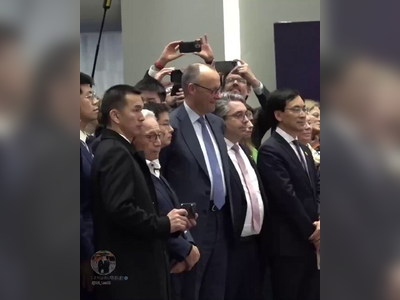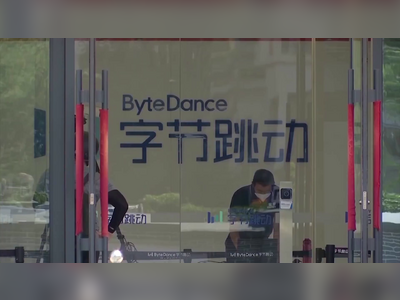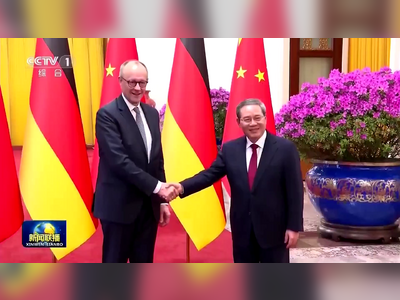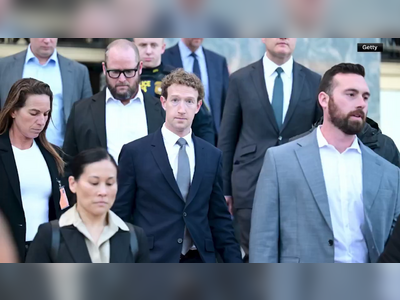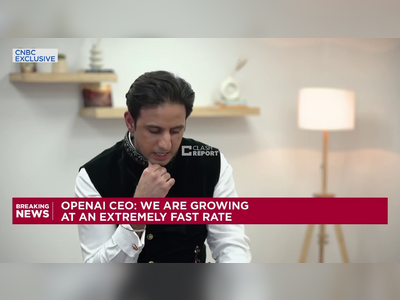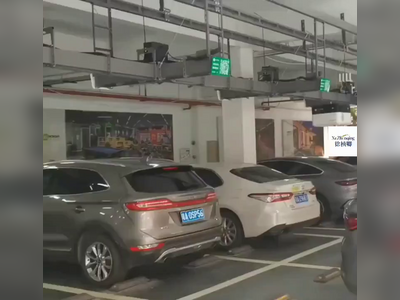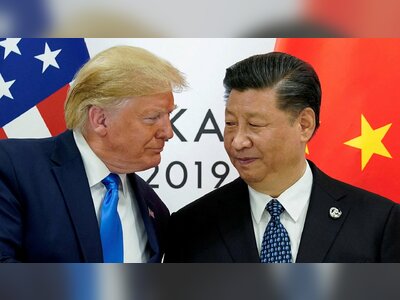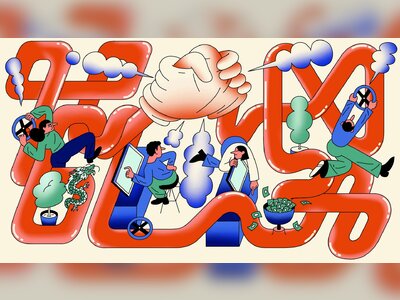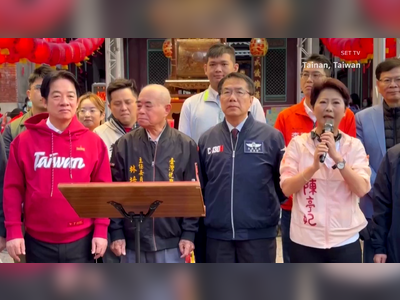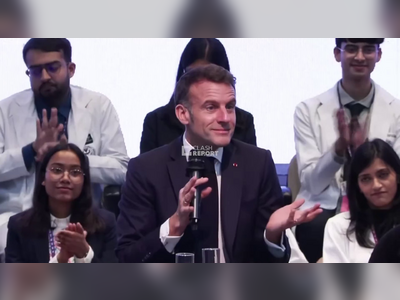
China Implements New Measures to Revitalize the Automotive Industry
The Chinese government's action plan focuses on expanding trade-in policies and easing car purchase restrictions to stimulate the auto market.
China's automotive sector is undergoing significant changes as the government unveils new measures aimed at revitalizing the market.
Central to these efforts is an action plan that includes the expansion of trade-in policies, strengthening the used car market, and easing purchasing restrictions, all designed to boost consumer confidence and stimulate industry growth.
In a move to support the expansion of consumer goods trade-in programs, particularly automobiles, the Chinese government announced the issuance of special treasury bonds amounting to 300 billion yuan ($41.4 billion) in 2025. This figure is significantly higher than the 150 billion yuan allocated for 2024, and it is expected to invigorate market activity.
Lang Xuehong, deputy secretary-general of the China Automobile Dealers Association, indicated that the increased funding is likely to enhance market dynamics.
Driven by new trade-in policies, domestic passenger vehicle retail sales for 2024 reached 22.89 million units, marking a 5.5 percent year-on-year increase, with notable growth in the penetration of new energy vehicles (NEVs).
The China Passenger Car Association forecasts that retail sales in 2025 will rise to 23.4 million units, a 2 percent increase from the previous year.
NEV retail sales are predicted to grow by 20 percent, reaching 13.3 million units and capturing a 57 percent market share.
Recent efforts have included expanding the scope of vehicle scrapping and replacement programs while improving subsidy standards for trade-ins.
The China Passenger Car Association estimates that approximately 5 million vehicles will be scrapped and 10 million replaced in 2025 due to these initiatives.
The action plan also outlines aims to extend the auto consumption chain through pilot reforms in car distribution and an enhanced focus on the automotive aftermarket, including car modifications, leasing, and recreational vehicle camping.
The growing interest in recreational vehicles highlights emerging trends within the industry, though challenges such as inadequate facilities and unstable utilities at campsites remain.
Lang Xuehong emphasized that the action plan promotes a service-oriented consumption model, reflecting the current state of the auto industry where car supply exceeds demand, yet there remains a significant need for high-quality services.
While traditional 4S stores continue to dominate China's auto aftermarket, third-party brands are experiencing rapid growth, according to Xu Haidong, vice chief engineer of the China Association of Automobile Manufacturers.
The used car market is also set to benefit from improved cross-regional transaction measures and the development of secure third-party trading platforms.
Statistics from the China Automobile Dealers Association revealed that 19.61 million used cars were transacted in 2024, reflecting a 6.52 percent increase year-on-year, with a total transaction value of 1.29 trillion yuan.
Remarkably, the transaction volume of secondhand NEVs crossed 1 million units for the first time, reaching 1.13 million units, an increase of 47.97 percent.
Industry experts note that China's used car market is comparatively small against those in Europe and the United States, indicating potential for growth that could also enhance new car sales by increasing vehicle turnover.
Proposals include the establishment of a comprehensive industry database to provide transparent information on used vehicles, thereby bolstering consumer confidence.
The action plan aims to address purchasing limitations by reducing consumption limits and removing unreasonable restrictions impacting long-term non-plate households seeking to buy cars.
Gradually easing these restrictions is expected to enhance demand for new vehicles, according to Guosen Securities, with first-time buyers contributing significantly to market growth.
Traffic expert Xu Kangming highlighted that the reliance on a lottery system for vehicle plate applications was initially a temporary measure, but its prolonged implementation in major cities is now creating disparities for long-term non-plate applicants.
As vehicle numbers rise, the effectiveness of such restrictions in alleviating traffic congestion diminishes.
In recent years, various regions have begun to ease car purchase restrictions.
Notably, Guizhou and Hainan provinces have lifted all restrictions on NEVs, while cities like Shenzhen, Hangzhou, and Tianjin have relaxed limits by increasing quotas or optimizing regulations.
However, complete removal of car purchase restrictions in megacities such as Beijing and Shanghai is deemed unlikely due to severe traffic congestion issues.
As of the end of 2024, Beijing reported more than 7 million vehicles on its roads, while Shanghai had over 5 million.
Central to these efforts is an action plan that includes the expansion of trade-in policies, strengthening the used car market, and easing purchasing restrictions, all designed to boost consumer confidence and stimulate industry growth.
In a move to support the expansion of consumer goods trade-in programs, particularly automobiles, the Chinese government announced the issuance of special treasury bonds amounting to 300 billion yuan ($41.4 billion) in 2025. This figure is significantly higher than the 150 billion yuan allocated for 2024, and it is expected to invigorate market activity.
Lang Xuehong, deputy secretary-general of the China Automobile Dealers Association, indicated that the increased funding is likely to enhance market dynamics.
Driven by new trade-in policies, domestic passenger vehicle retail sales for 2024 reached 22.89 million units, marking a 5.5 percent year-on-year increase, with notable growth in the penetration of new energy vehicles (NEVs).
The China Passenger Car Association forecasts that retail sales in 2025 will rise to 23.4 million units, a 2 percent increase from the previous year.
NEV retail sales are predicted to grow by 20 percent, reaching 13.3 million units and capturing a 57 percent market share.
Recent efforts have included expanding the scope of vehicle scrapping and replacement programs while improving subsidy standards for trade-ins.
The China Passenger Car Association estimates that approximately 5 million vehicles will be scrapped and 10 million replaced in 2025 due to these initiatives.
The action plan also outlines aims to extend the auto consumption chain through pilot reforms in car distribution and an enhanced focus on the automotive aftermarket, including car modifications, leasing, and recreational vehicle camping.
The growing interest in recreational vehicles highlights emerging trends within the industry, though challenges such as inadequate facilities and unstable utilities at campsites remain.
Lang Xuehong emphasized that the action plan promotes a service-oriented consumption model, reflecting the current state of the auto industry where car supply exceeds demand, yet there remains a significant need for high-quality services.
While traditional 4S stores continue to dominate China's auto aftermarket, third-party brands are experiencing rapid growth, according to Xu Haidong, vice chief engineer of the China Association of Automobile Manufacturers.
The used car market is also set to benefit from improved cross-regional transaction measures and the development of secure third-party trading platforms.
Statistics from the China Automobile Dealers Association revealed that 19.61 million used cars were transacted in 2024, reflecting a 6.52 percent increase year-on-year, with a total transaction value of 1.29 trillion yuan.
Remarkably, the transaction volume of secondhand NEVs crossed 1 million units for the first time, reaching 1.13 million units, an increase of 47.97 percent.
Industry experts note that China's used car market is comparatively small against those in Europe and the United States, indicating potential for growth that could also enhance new car sales by increasing vehicle turnover.
Proposals include the establishment of a comprehensive industry database to provide transparent information on used vehicles, thereby bolstering consumer confidence.
The action plan aims to address purchasing limitations by reducing consumption limits and removing unreasonable restrictions impacting long-term non-plate households seeking to buy cars.
Gradually easing these restrictions is expected to enhance demand for new vehicles, according to Guosen Securities, with first-time buyers contributing significantly to market growth.
Traffic expert Xu Kangming highlighted that the reliance on a lottery system for vehicle plate applications was initially a temporary measure, but its prolonged implementation in major cities is now creating disparities for long-term non-plate applicants.
As vehicle numbers rise, the effectiveness of such restrictions in alleviating traffic congestion diminishes.
In recent years, various regions have begun to ease car purchase restrictions.
Notably, Guizhou and Hainan provinces have lifted all restrictions on NEVs, while cities like Shenzhen, Hangzhou, and Tianjin have relaxed limits by increasing quotas or optimizing regulations.
However, complete removal of car purchase restrictions in megacities such as Beijing and Shanghai is deemed unlikely due to severe traffic congestion issues.
As of the end of 2024, Beijing reported more than 7 million vehicles on its roads, while Shanghai had over 5 million.
AI Disclaimer: An advanced artificial intelligence (AI) system generated the content of this page on its own. This innovative technology conducts extensive research from a variety of reliable sources, performs rigorous fact-checking and verification, cleans up and balances biased or manipulated content, and presents a minimal factual summary that is just enough yet essential for you to function as an informed and educated citizen. Please keep in mind, however, that this system is an evolving technology, and as a result, the article may contain accidental inaccuracies or errors. We urge you to help us improve our site by reporting any inaccuracies you find using the "Contact Us" link at the bottom of this page. Your helpful feedback helps us improve our system and deliver more precise content. When you find an article of interest here, please look for the full and extensive coverage of this topic in traditional news sources, as they are written by professional journalists that we try to support, not replace. We appreciate your understanding and assistance.
